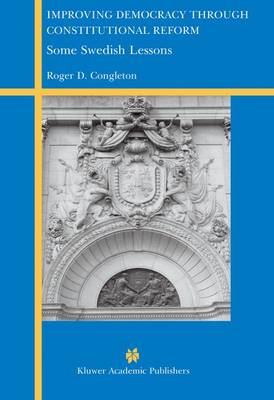Do constitutions matter? Are constitutions simply symbols of the political times at which they were adopted, or do they systematically affect the course of public policy? Are the policy crises of failing democracies the result of bad luck or of fundamental problems associated with the major and minor constitutional reforms adopted during their recent histories?
The purpose of the present study is to address these questions using a blend of theory, history, and statistical analysis. The Swedish experience provides a nearly perfect laboratory in which to study the effects of constitutional reform. During the past 200 years, Swedish governance has shifted from a king-dominated system with an unelected four-chamber parliament to a bicameral legislature elected with wealth-weighted voting in 1866, and then to a new electoral system based on proportional representation and universal suffrage in 1920, and finally to a unicameral parliamentary system in 1970. All these radical reorganizations of Swedish governance were accomplished peacefully using formal amendment procedures established by previous constitutions.
By focusing on constitutional issues rather than Sweden's political history, this book extends our understanding of constitutional reform and parliamentary democracy in general.
- ISBN13 9781461350682
- Publish Date 24 October 2012 (first published 30 April 2003)
- Publish Status Active
- Publish Country US
- Imprint Springer-Verlag New York Inc.
- Edition Softcover reprint of the original 1st ed. 2003
- Format Paperback
- Pages 236
- Language English
